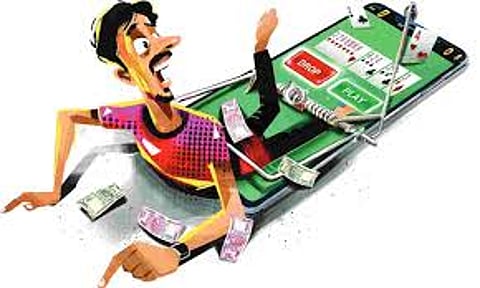

CHENNAI: E-sports Players Welfare Association (EPWA) has demanded the removal of time restrictions (12 am to 5 am) which was recently implemented by the State government. According to the data there are 22,000 professional gamers in Tamil Nadu who only depend on gaming, says EPWA members during a press interaction on Wednesday.
EPWA, along with a coalition of professional gamers from Tamil Nadu, has filed a case against the newly implemented regulations on real money gaming, 2025, in the High Court.
The petition argued that the regulations violated the fundamental rights of online gamers as guaranteed under Articles 14, 19, and 21 of the Constitution, significantly impacting the professional gaming community. It further contended that the State government lacked the constitutional authority to enact such regulations, as skill-based games fall under the jurisdiction of the Union government, as per the Information Technology (Intermediary Guidelines and Digital Media Ethics Code) Rules, 2021.
According to the State of India Gaming Report 2022, jointly produced by Lumikai and Amazon Web Services (AWS), India’s e-sports player base surged from 1.50 lakh in 2021 to 6 lakh in 2022. It forecasts this number to reach 1.5 million by 2027, underscoring the rapid expansion of the Indian gaming ecosystem.
“We’re happy with the certain regulations imposed by the State government but the ban on online gaming between 12 am and 5 am must be removed. For many competitive gamers, these are prime playing hours, as they engage with top-tier global competitors and working professionals who participate in e-sports after their job commitments,” said Vikram Kumar Lungi, winner of the 2017 Asian Poker Tour (APT) Hyperturbo Championship. “Only in Tamil Nadu, gamers are restricted in the country. Gaming is my career, and I should not have to sacrifice my livelihood due to outdated policies.”
Other players also argued that the regulations violated their right to livelihood, as professional gaming was a career for thousands of individuals. Secondly, the restrictions compromised competitive integrity and global participation, as many international and high-level competitive matches occurred late at night. Placing time-limits during these hours prevented Indian gamers from competing on a global stage.
PS Rathnavel, an online chess player, said: “Competing at a global level requires strategy, patience, and the opportunity to play against the best minds in the world. Restricting night-time gaming is akin to telling an athlete they cannot train during peak competition hour. It simply does not make sense.”